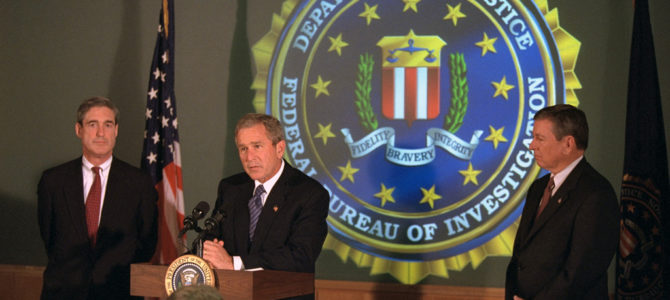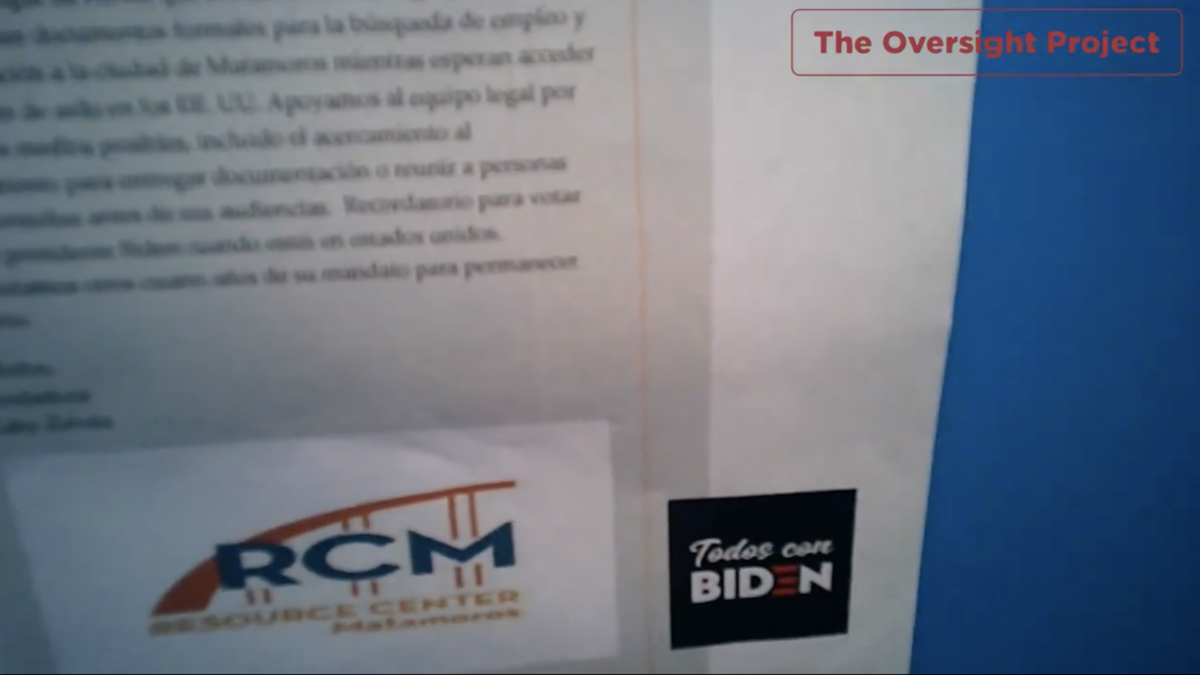
Today’s political left has been promoting the Federal Bureau of Investigation as an incorruptible institution. Although its talking points now tend to treat the release of the House Intelligence Committee surveillance abuse memo as a dud, Democratic leadership and its support system in the media was apoplectic about its impending release.
No doubt they feared it would incriminate Democratic leadership under the past administration for abuse of power—namely to obtain a Foreign Intelligence Surveillance Act warrant to surveil an American in the aim of bringing down President Trump.
Much has been written about the whole sordid story, from the Christopher Steele dossier to “insurance policies” in the event of a Trump election. I’m not going to get into those details. One of the most compelling assessments of the abuse of FBI power both to exonerate Hillary Clinton and frame Trump comes from federal prosecutor Joe diGenova. Also, as John Davidson recently wrote in The Federalist, politicization and abuses of power permeated President Obama-era departments and agencies, most obviously the Internal Revenue Service.
Instead, I’d like to focus on two other questions worth pondering. First, why are leftists painting the intelligence services and the FBI—their longtime bogeymen—as suddenly above reproach? Second, how might the politicization of senior level officials affect rank-and-file government workers?
Why Is the Left Suddenly in Love with the FBI?
So, why would the political left—those who push for the centralization of power and fight the de-centralization of power—suddenly paint the FBI and our other intelligence agencies as clean as a whistle, somehow immune from accountability? It’s curious to watch leftist partisans go into pseudo-patriotic mode to fight any investigation into potential Obama-era abuses of power. Their politicos and pundits alike explain that doing so would “compromise our national security” or somehow soil the good name of the FBI.
It’s like they’re suddenly trying to conjure up the aura of Efrem Zimbalist Jr.’s old TV series “The FBI” in order to pull a fast one. Just recently, Stephanie Miller of Free Speech TV dismissed concerns about partisan abuses of power in the FBI by saying everybody knows the FBI is “conservative.” It’s also interesting to see their special love for special counsel Robert Mueller. They talk up his reputation as a somehow incorruptible straight arrow, and, well, a Republican, after all.
Rewind a few years, and you’ll hear nothing but contempt from these same folks for all of the intelligence agencies. The Central Intelligence Agency, FBI, and National Security Agency were all enemies of the people, as far as they were concerned, with references to Watergate, the Pentagon Papers, and so on. They never hid their disdain for intelligence agencies before, nor show much regard for the official mission of these agencies to keep our nation safe and free, with allegiance only to the Constitution.
That was then. So might now ask: what exactly has changed to create this peculiar 180-degree turn among the Left, even citing national security and the FBI’s reputation as a reason to ignore any emerging evidence that senior officials there may have abused their authority to spy on Americans and affect a presidential election? What happened?
It’s All About Timing
Go back a hundred years and realize that members of today’s Left are heirs of cultural Marxists. The whole goal of cultural Marxism is to take over and absorb the institutions of free societies into a collectivist system controlled by an elite-driven bureaucratic apparatus.
They really made no secret of their plan to start squatting within institutions and multiplying their ranks inside. Once the Left corrupted institutions, those institutions became sacrosanct. An anointed elite (“the vanguard,” as Soviet dictator Vladimir Lenin put it) would take charge of the entire society, running all of the institutions as they saw fit, with little to no accountability.
The seeds of the corruption we see in our institutions today were sown through a group of cultural Marxist academics at Columbia University in the 1930s, known as the Frankfurt School. Their school of thought, Critical Theory, was about undermining and tearing down traditional institutions and ideas in the name of “liberating” humanity and promoting social justice.
One of its leading lights was Italian communist Antonio Gramsci, who noted that the only way to build socialism in the West was to tear down the culture, through a “long march through the institutions.” This meant undermining all of the institutions upon which free societies are built, including universities, legislatures, arts, courts, the corporate world, medicine, psychiatry, the military, the church, and especially the family. Key to enforcing all of this and squashing dissent has always been an effective secret police.
Academic Herbert Marcuse was perhaps the most influential member of the Frankfurt School in twentieth-century America. In his essay “Repressive Tolerance,” he opposed free speech because it allowed for the tolerance of ideas he considered anathema. This was likely the germ from which the epidemic of political correctness metastasized in campus life and American society. Marcuse also encouraged the hostilities brought about by identity politics, which went under the euphemistic name “multiculturalism.”
All was meant to deconstruct Western culture built on the rule of law so that a new collectivism led by certain anointed power elites could take root. Cultural Marxists spit on the idea that objective truth exists, pushing instead for a self-refuting truth that all truth is relative. This was the snake oil they successfully sold in education. They held traditional morality in contempt and ridiculed the organic family while remaining puritanical about their slogans of social justice and equality.
Echoing Gramsci, those who would undermine America and its form of government have argued very openly and for many years that to change the system, they would have to do it “from within.” Saul Alinsky worked toward that end, and it’s what community organizing is all about. Both Barack Obama and Hillary Clinton were ideological followers of Alinsky.
Building the Deep State, Especially Through Intelligence
Based on the patterns I’ve described, it should come as no surprise if there is corruption in our intelligence agencies. There is no bigger prize for authoritarians in a free nation than to take over the institutions focused on national security because these gather sensitive data on people and organizations. In a free nation, those institutions as a whole are checked-and-balanced to defend our freedom. In totalitarian societies with no accountability, we have another name for them: the secret police.
People who push for centralized state power will simply try to consolidate control over such institutions once they can. I don’t think they can help it. A corrupted high-level official anywhere will abuse that power to take down perceived enemies, the rule of law be d-mned.
I can’t speak for the general ranks of FBI workers, or any other intelligence workers. They may very well be good, solid people, as both Democrats and Republicans claim today. As the Nunes memo asserts, the improprieties are limited to senior officials.
Okay. But here’s a question for you: What happens if rank-and-file workers are increasingly exposed to superiors who make no secret of their personal politics?
Let’s Examine That Question
Senior officials set the tone and the morale for entire organizations. I think we can feel that politicization whenever President Obama’s director of national intelligence James Clapper or CIA director John Brennan go on MSNBC or CNN to entertain their hosts’ incriminations of President Trump as colluding with Russia.
We also saw it during the presidential transition, when Democrats organized several Clinton electors in the Electoral College to petition the DNI to brief the entire college on the subject before its members would be allowed to certify the election results. Another example is the 50 intelligence analysts who complained in 2015 that their analysis was altered by senior officials to enhance the Obama administration’s narrative on ISIS.
If left unchecked, a culture of politicization can set in, and it can lower the morale of an entire organization. That’s one reason to discourage open displays of partisanship by civil servants in the workplace, across the board. A politicized culture can trickle down easily, affecting more workers whose promotions and performance appraisals depend on their superiors.
In some cases, a superior might even ask a worker to do something that seems to cross the line. To illustrate, let me tell you a little story from a long time ago. I once worked as a CIA analyst. I had a lot of contact with senior analysts who did not hide their politically liberal views, although they duly emphasized the importance of having a rigorous methodology to make the analysis sound.
One chief of mine wore her leftism on her sleeve. I wish everyone in that line of work would try hard to keep her political views to themselves. I did, and I think most Americans prefer that. But I suppose if you are on a mission to change the entire culture, that principle doesn’t apply.
This superior openly disparaged President Reagan and often promoted liberal views in the office. Many there seemed to adopt that attitude, for example referring to conservative pundits as “screamers” and openly promoting Democratic Party politics and candidates. Offices of intelligence analysis should not resemble left-wing academic lounges, but I fear they easily can.
Remember, the CIA’s work is limited to dealing with foreign actors, not Americans. So I thought it strange when one day that division chief handed me a thick print-out filled with various comments and speeches by high-level American officials on the subject of President Reagan’s Strategic Defense Initiative. As I recall, all were unclassified, public statements. She simply asked me to review the print-out and highlight any references that might suggest SDI violated the ABM Treaty.
I suppose some folks would find this request harmless, perhaps a pet project to fill in time during a lull. But it felt very weird to me. In retrospect, I should have challenged her and asked why she wanted me to engage in what amounted to a form of opposition research on American officials on company time.
Initially, I complied and took the print-out to my desk. I thumbed through it for a little while. Finally, I just handed it back to her and said there was nothing there. But the memory has always bothered me. At best, her request was unethical. It was definitely politicized. At worst, it may have been illegal.
All I can say is that if the politicization I experienced in the Reagan era was disturbing, I cannot imagine how much worse it must have gotten after eight years under President Obama. But that’s because Obama-era policies promoted the growth of a centralized mass state. All of those policies worked against the de-centralization of power. That’s the ultimate aim of leftism. When a chief executive works to grow such a state, the result will always be a decline of accountability and transparency.
Our lesson boils down to Lord Acton’s warning that absolute power corrupts absolutely. The American founders were well aware of those dynamics. So we shouldn’t be surprised. And we should fix what went wrong.









